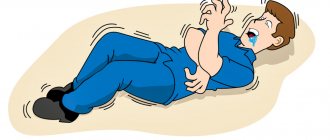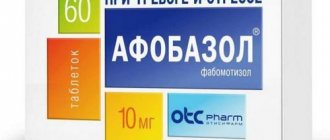When should you contact a neuropsychologist?
A neuropsychologist is a psychologist qualified as a clinical psychologist.
The scope of activity of a neuropsychologist includes the tasks of neuropsychological diagnostics and neuropsychological rehabilitation and correction. Neuropsychological diagnostics allows us to identify which areas of the brain are not working correctly, that is, it allows us to establish the causes of certain disorders. Neuropsychological correction is a set of measures aimed at restoring or forming insufficient function through a system of specially organized influences. Neuropsychological correction is based on restoring the correct functioning of brain structures through the gradual passage of all stages of ontogenesis
We recommend contacting a neuropsychologist for diagnosis if a child or adult:
- Gets tired quickly
- Lethargic
- Emotionally unstable
- Sleeps a lot
- The child spends too much time on homework
- Gets sick often
- Shows uneven, very large handwriting
- Shows neurotic reactions
- He has slurred speech (dysarthria)
- Decreased or increased muscle tone
- Motor clumsiness, lack of coordination
- Makes a lot of mistakes in writing
- Doesn't read well
- Can't redraw a picture
- Can't hear spoken word
- Poor visual memory
- Poor auditory-verbal memory
- Increased distractibility
- Increased excitability
- Uncontrollability
- Difficulties in mastering the school curriculum
- Problem solving difficulties
- Missing letters in writing and missing words
- Poor speech
- Difficulty controlling affect
- Fidgets in his chair
- Can't sit in one place
- Synkinesis
If you have one or more such complaints, we recommend that you seek advice from a neuropsychologist.
Neuropsychological diagnostics allows:
✅ identify strengths and weaknesses in the development of brain systems;
✅ find out if your child is ready for school;
✅ identify the leading hand and features of information processing by the brain;
✅understand the cause of various developmental disorders (ADHD, dyslexia, dysgraphia, difficulties in mathematics, reading and writing, etc.)
✅correctly, taking into account the characteristics of brain development, build a correctional program or school preparation program
The examination includes:
- study of anamnesis (conversation with parents, features of early development)
- study of the motor sphere testing of all types of perception (visual, auditory, tactile)
- study of attention and performance
- study of memory (visual, auditory, verbal, motor, etc.)
- research into the possibilities of analysis and synthesis, logic
- arithmetic skills
- nature of writing and reading
Based on the research carried out, a conclusion is given with detailed conclusions about the functioning of the brain systems and mental functions and recommendations for further work.
Neurodiagnostics is carried out individually (parents are present with children under 18 years of age) and includes tasks of varying levels of complexity.
The diagnosis is carried out in the presence of the parent/parents for 1 hour (in some cases 2 meetings are necessary) and consists of 3 stages.
At the first stage, the request (parent's complaints) is listened to. The psychologist gets to know the child - establishes contact, examines material that clearly demonstrates the child’s development (notebooks, drawings, crafts, etc.), collects information about the child’s development.
At the second stage, the child is offered a series of tasks in a playful or educational form (depending on age) with or without picture (stimulus) material. The tasks are aimed at studying the state of attention functions, visual and auditory memory, visuospatial functions, planning and self-control skills, thinking, speech, etc.
At the third stage, the psychologist interprets the data obtained and gives a conclusion with recommendations orally. A full diagnosis is possible from 5-6 years of age; the greatest benefit from neuropsychological correction will be if the work begins as early as possible.
TsNiR specialist Children's neuropsychologist, clinical psychologist, teacher of neuro-yoga Romanova O.A.
Romanova O.A.
Neuropsychologist
[email protected]
Clinical psychologist, neuropsychologist, neuroyoga teacher.
Graduated from the Moscow Humanitarian-Economic Institute (psychologist, psychology teacher, consulting psychologist); Russian State Social University with a degree in Clinical Psychology. More than 10 years of practical experience working with children.
Main areas of work: 1. Neuropsychological diagnostics (determining the characteristics of memory, attention, thinking, motor skills, speech development). 2. Correctional classes with children with developmental difficulties (mental and psycho-speech retardation (MSD, SSD); attention deficit hyperactivity disorder (ADHD); minimal brain dysfunction (MCD) and learning difficulties (low academic performance, distracted in class, absence interest in learning, attention deficit, difficulties in mastering the school curriculum, missing letters in words, etc.) 3. Wellness classes in neuroyoga for children from 3 years old.
- Neuropsychological diagnostics.
- Correctional classes for children with developmental difficulties.
- Sensorimotor correction.
- Wellness classes in neuroyoga from 3 years.
Read more →
Features of the profession
The work of a neuropsychologist helps the client adapt to the living conditions in which he is currently located. There are officially two branches of neuropsychology: adult and child. The second is younger and is developing very quickly, without yet having an official branch. That is why neuropsychology uses the same diagnostic methods for children’s mental problems as for adults.
Most often, neuropsychologists work with children who suffer from:
- cerebral palsy;
- disturbances in the processes of controlling one’s own behavior, as well as attention (this phenomenon is classified as attention deficit disorder, as well as hyperactivity disorder);
- difficulties in the process of socialization (adaptation to society);
- increased fatigue;
- slow process of mastering the school curriculum.
This specialist also helps children with limited mental abilities of a congenital nature or those that appeared during life, for example, after injuries. For each child, a neuropsychologist selects a special training program, thanks to which effective correction of mental functions is possible. It consists of performing a variety of tasks aimed at improving attention, memory, etc.
A clinical psychologist in the field of neuropsychology also works with adult patients. They resort to the help of this specialist after damage to the nervous system, which has suffered as a result of illness, physical and psychological trauma. It is important to remember: this specialist is not a doctor.
What problems should you address to such a psychologist?
Children are examined by a clinical psychologist at the request of parents. You should contact a specialist for a neuropsychological study in the following situations:
- if the child has difficulty mastering educational material, he makes mistakes or is sloppy in writing;
- with low motivation for learning, when parents have to force the student to do homework;
- if the child is not independent or untidy at school;
- when a preschooler or junior schoolchild slowly completes tasks and gets tired quickly;
- the child has difficulty concentrating, he is constantly distracted, and cannot concentrate on a task for a long time;
- increased activity in movements;
- clumsiness of movements, uncertain behavior;
- speech development disorders;
- emotionality, constant mood swings, vulnerability;
- if childbirth and pregnancy were pathological, there are genetic lesions of the nervous system, or the baby encountered the emotional coldness of adults after birth;
- adults can also turn to this specialist with problems with memory, attention problems, perception, thinking, and speech after injuries and strokes.
Important qualities
Regarding human, and not professional qualities, a representative of this profession needs to be able to win over the patient and establish a trusting relationship with him. A prerequisite is the presence of empathy, but at the same time the ability to abstract, without letting the patient’s problems pass through oneself. It is also necessary to have a stable nervous system, since in practice we often encounter difficult cases of diseases.
A neuropsychologist must be able to work with children, since they make up the majority of the total number of patients. Patience and endurance are required.
In addition, a representative of this profession will require constant professional development and self-education. The majority of research in the field of neuropsychology is published in English, so it is important to have knowledge of this language. In addition, at various international seminars in this language it will be possible to exchange experiences with specialists from other countries.
How are classes conducted?
They consist of two parts: motor (reminiscent of exercise therapy) and cognitive (cognitive activity). Neurocorrection does not imply taking ☘️ medications. By combining exercises for the development of the motor sphere and the mental function, it is possible to work in all directions at once.
Classes are often conducted jointly with parents. Parents watch the technique of performing the exercises, practicing it at the same time.
In addition to remedial classes, you need to do homework to consolidate new skills.
Training to become a Neuropsychologist
Universities
Moscow State University named after M.V. Lomonosov
Clinical psychology (Faculty of Psychology, M.V. Lomonosov Moscow State University)
Ural Federal University named after the first President of Russia B.N. Yeltsin
Clinical psychology (Ural Humanitarian Institute, UrFU)
Chelyabinsk State University
Clinical psychology (Faculty of Psychology and Pedagogy)
Russian State Humanitarian University
Clinical psychology (Institute of Psychology named after L.S. Vygotsky Russian State University for the Humanities)
First Moscow State Medical University named after. I.M.Sechenova
Clinical psychology (I.M. Sechenov First Moscow State Medical University)
To become a specialist in this profile, you first need to obtain a higher education in the profession of “clinical psychologist”. Next, you need to improve your qualifications in graduate school, at the same time defend your candidate's dissertation, and then your doctorate.
What is this - child neuropsychology?
All reactions of a child (and, of course, an adult) are regulated by the brain. A child hears, sees, laughs when they begin to tickle him or read about something comical in a book, thanks to the coordinated work of various brain structures.
It is neuropsychology that allows, with the help of a special psychological examination (that is, no injections are given, no complex technological devices are used), to determine whether various brain structures work normally, how well they do it, or whether the brain “gives some kind of malfunction” " Moreover, again, it is neuropsychology that makes it possible to almost always determine absolutely exactly what kind of “failure” this is, what area of the brain is affected.
This is how neuropsychological diagnostics performs its first important function in working with children: diagnostic. The prognostic function of neuropsychology is no less important: that is, based on the results of the examination, the neuropsychologist not only states the manifestation of one or another symptom, but can also determine the further prognosis of the development of the disorder with and without correction.
But, of course, its possibilities are not limited to this. The role of neuropsychological correction and rehabilitation is also undoubted. Impaired development rates, focal brain lesions, epilepsy, hyperactivity, autism, etc. are disorders where the work of a pediatric neuropsychologist is extremely important.
A method for monitoring the dynamics of the treatment and rehabilitation process. Of course, to assess the outcome of treatment, there are instrumental diagnostic methods (electroencephalography, evoked potentials, magnetic resonance and computed tomography, etc.), and they are also actively used in our clinic. But it is not always possible to see how much the activity of higher mental functions has changed. In addition, often a neuropsychological study makes it possible to obtain a more detailed picture of the lesion, to notice symptoms that are characteristic of larger-scale brain lesions than, for example, MRI results show. This suggests that with the help of neuropsychological methods, which in complex cases can be combined with instrumental diagnostic methods, the diagnosis becomes extremely accurate.
Salary as of 08/31/2020
Russia 15000—50000 ₽
Moscow 20000—120000 ₽
The salary of a neuropsychologist depends on the country and region in which he operates. Directly in Moscow, an employee who has just started practicing receives about 20,000 rubles, and an experienced specialist earns 50,000 rubles. Payment for the work of a professional specialist in the field of neuropsychology can be more than 90,000 rubles. Those in private practice can earn much more, provided that they truly have fundamental knowledge in the field of neuropsychology.
Moneybox of knowledge
Invite your child to play the exciting neuropsychological game “Try Again”
Consultation with a neuropsychologist at the Speech Center.
A neuropsychologist will identify the causes of the child’s difficulties related to the peculiarities of brain function, determine which part of the brain has “failed”, talk about the child’s strengths and weaknesses, help to see his current and potential capabilities and offer ways of effective help in each specific case.
Consultation with a neurologist.
During the consultation, the doctor collects complaints, interviews parents about the symptoms and situations that provoke them. She is interested in the characteristics of the child’s physical and mental development, including how pregnancy and childbirth proceeded. Conducts a neurological and general clinical examination, checks reflexes and sensitivity.
Career
One of the career paths for a neuropsychologist is the opportunity to become the head of a department. Many specialists open private offices and also engage in scientific activities, which often extend beyond the country. This opens up great prospects in international practice.
Professional knowledge
For a clinical psychologist in the field of neuropsychology, it is necessary to have knowledge in such areas as:
- psychophysiology;
- clinical and age anatomy;
- hygiene and physiology;
- psychotherapy;
- neurology;
- physiology of sensory systems, as well as higher nervous activity;
- psychiatry;
- physiology of the central nervous system.
Particular attention should be paid to the sections of these areas that are aimed at children.
A neuropsychologist must have an understanding of both clinical psychology and neuroscience in order to design effective treatment programs for patients. At the same time, he must monitor how effective the method of improving mental functions is, and also correct it in a timely manner. This is possible with the help of knowledge of modern diagnostic methods, as well as the ability to use them.
Duration of neurocorrection
Everything is individual, but neuropsychologists recommend attending classes 2 times a week for six months. Sometimes the child experiences regression. You should not be afraid of this , this is a temporary phenomenon that occurs as a protective reaction of the brain to exercise.
✔️ The effectiveness of classes is influenced by many factors: the situation in the family, the somatic state of the child, etc. The main mistake of most parents is that they shift responsibility for the result to a neuropsychologist.
But if you don't follow the recommendations and don't do your homework, you shouldn't expect progress.
Therefore, in neuropsychology classes, the purpose and objectives of each lesson . Give an explanation of why you need to do the exercises. And they explain to parents the importance of creating a situation of success for their child in order to motivate them for further education.
Treatment of pathologies
Classes with a neuropsychologist may include a special set of exercises related to breathing. The duration will depend on the degree of complications and the age of the child.
Classes are aimed at:
- Increased energy potential, improved muscle tone, memory and attention. Basic exercises: breathing, stretching, a combination of relaxation and tension.
- Improved motor coordination and sensory perception. Basic exercises are aimed at developing a sense of rhythm, developing memory and movements in various directions.
- Self-organization, when the child develops self-control, the ability to follow instructions and adhere to the rules.
The exercises can be performed while standing, lying down or sitting. It is advisable that the whole family be involved in the process; all movements must be worked out at home.
A neuropsychologist does not treat the underlying disease. His services are used during the patient’s rehabilitation process, when the cause of the disease has been eliminated. There are cases when the main treatment for a deviation can only be neuropsychological.









